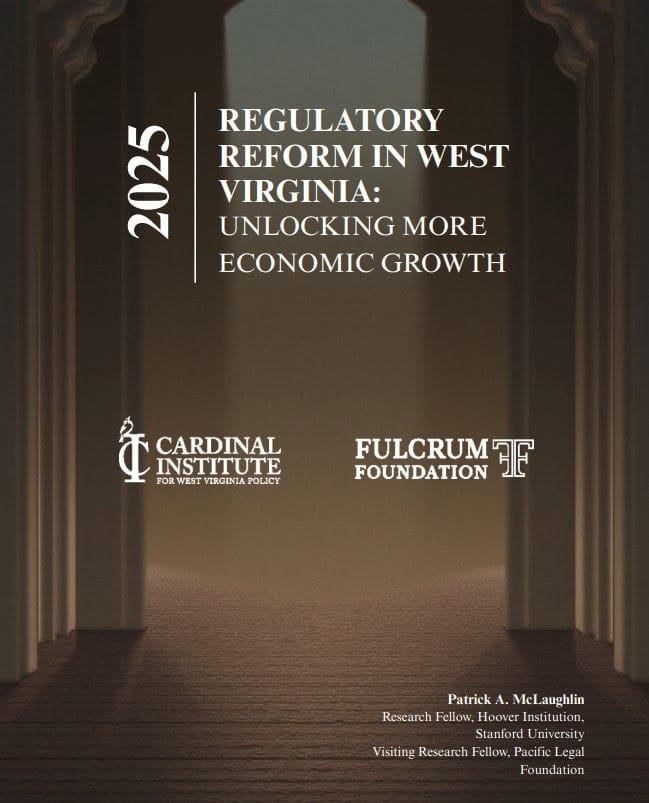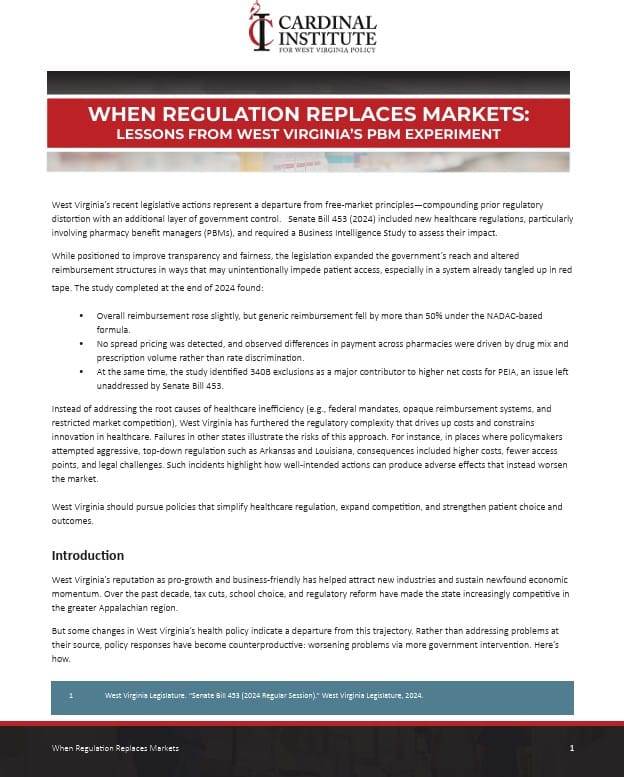
Voice and Exit
Cardinal Team
Where given institutions fail to satisfy the wants or needs of those living under them, there are two options for expressing dissatisfaction: voice and exit.


In West Virginia, the argument can be made time and again that public education institutions are failing to live up to expectations. Within the last year, we’ve seen two major story lines elaborating on these woeful details. First, it was the proportion of high school graduates needing to take remedial college classes. Now, it’s the new West Virginia Schools Balanced Scorecard illustrating that, at best, schools are partially meeting standards in Language Arts and Mathematics.
Given these reports and their regularity, any parent on any given day has fair reason to wonder whether or not their child is receiving a quality education.
So, what’s a parent to do in these situations?

One such option is to voice their concerns. Luckily, there are multiple levels where this option can be exercised. First in the classrooms with the child’s teachers. If that proves unsuccessful, move continuously up the food chain through the school, the district, and the state levels of administration. In addition to formally voicing complaints, the modern era allows anyone with a social media account to voice their displeasure to the great masses and drum up as much support as their persuasive tactics afford.
However, if last spring has taught us anything, it is unlikely that disparate voices unsatisfied with the results they are seeing in their local schools can accumulate the necessary critical mass to effect substantial change in West Virginia’s education system. The vigilant parent could surely gain a wide base of support for the cause. But is that parent going to be able to activate thousands of parents to take significant time off work, coordinate mass gatherings at the Capitol, and capture almost undivided legislative and media attention throughout the entire state? I doubt it.
Which brings me back to the remaining option – exit.
For many West Virginia families, exiting their current school system in search of greener educational pastures is a heady endeavor. Recall, our state has no options in terms of charter schools, voucher programs, education savings accounts, or the like. For most families, the switch involves incurring the cost of moving to a better school district, or coming up with the resources to send their child to private school or engage in homeschooling.
To offer some context, consider that the median household income in the Mountain State is roughly $45,500 and the average private school tuition is roughly $4,750 – and that’s before any other associated expenses are included such as books, uniforms, and transportation. For our more local friends who might wish to send their high schooler to Charleston Catholic, that tuition figure is significantly higher.
But fret not, exit is a more feasible option than it seems.

Thanks to tweaks to the acceptable scope of use of 529 plans provided by the Tax Cuts and Jobs Act passed last December, families have a new option available. For those unfamiliar, 529 plans provide a tax incentive to save and invest your own money for education expenses – as the contributions to such accounts is deductible, and the withdrawals from that plan are also untaxed if used for allowable education expenses.
Prior to TCJA, 529 plans were strictly limited to use on higher education expenses, though the scope of what constituted those expenses was quite broad – including room and board, laptops, and books in addition to tuition. Post-TCJA, the benefits and scope of 529 plans have been expanded to include K-12 tuition expenses up to $10,000 per student, per year at a private, public, or religious school.
Despite the formal lack of options at the state level, West Virginia families now have a back door, and relatively low cost option to exercise choice in their child’s education. Because of the tax code changes, opting out of the public school system in the Mountain State is within the realm of financial possibility.
Frustrated parents, your disparate voices alone probably aren’t enough. But when you start walking, people will start paying attention.
— Jessi Troyan, PhD Economist and Development Director
For more information on 529 plans, you can watch the Cardinal Institute’s interview with Greg Dolan of Catholic Education Partners here.







